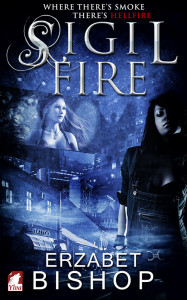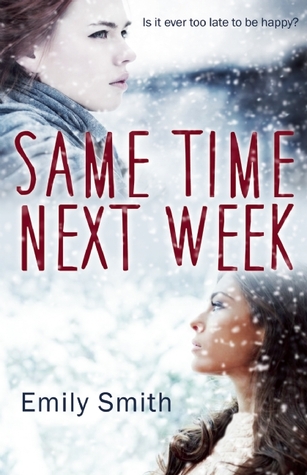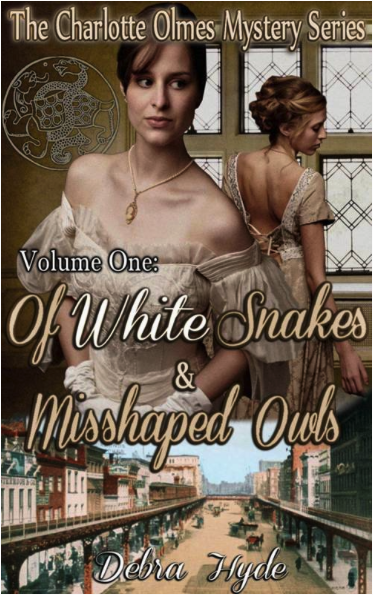1. What are the origins of the Vin Packer name?
I was having lunch with a man named Vincent and a woman whose last name was Packer. I told them I’d just become a Literary Agent after trying in vain to get one. I had printed stationery with Marijane Meaker, Literary Agent on it and all my clients would be me under various pseudonyms. My first pseudonym would be Vin Packer. And so it was.
2. How did you come to write your first Vin Packer novel, Spring Fire?
I went to a Southern boarding school where many of the girls and some teachers, too, were gay. This was during WWII and there were no men around, none allowed on that campus anyway. I told Dick Carroll, publisher of Gold Medal Books, that I’d like to write a novel about it. He said there were two things I couldn’t do because of the strict postal censors. I could not set it in a boarding school because girls would be underage, and I couldn’t have a happy ending because that seemed as though author accepted homosexuality as normal.
3. How was it received by the Gold Medal publisher, and were you surprised by its pioneering success?
I was amazed by the success of Spring Fire. So were the Fawcett Brothers. Roger Fawcett invited me to the penthouse for a drink. He announced that “we’d” outsold the paperback edition of God’s Little Acre. He poured water for all our drinks from a special thermos he had made with a tiny penis as the spout. I didn’t even tell my parents about the book the cover was so gaudy, nevermind the subject matter.
4. What was it like to work for Gold Medal back in the Fifties?
It was fun working for Gold Medal because Dick Carroll who was in charge was a joke-telling, scotch-drinking Irishman. He’d been working in Hollywood and he was filled with ideas for books he thought would make good movies and we met often at The Algonquin Hotel, next door to Fawcett. He loved talking book ideas. He was always missing his train to Connecticut and he had an eye for the pretty secretaries who stopped in the Blue Bar, and nursed one drink for hours.
5. Can you give us an idea of what inspired some of your early works like Dark Don’t Catch Me, Young and Violent, The Twisted Ones and Come Destroy Me?
Dark Don’t Catch Me was inspired by the Emmett Till murder. The Young and Violent was written when gang wars were in the news and up the street from me was Spanish Harlem where you’d see gang members strutting around in their leather jackets. I don’t remember how I came to write The Twisted Ones or what inspired it, but Come Destroy Me was written with an actress named Geraldine Page in mind. Again, Dick with his interest in movies, had taken me to a play she was starring in. Of course I never met her and although I sent her a copy of the book, there was no reply from her. BUT, that book got me my first review in The New York Times Sunday Mystery Column, written by Anthony Boucher. He’d never reviewed paperbacks, so the book also established a rapport between Boucher and me. I vowed I’d write mysteries from then on, because it was the only place I got reviewed.
6. Tell us a little about the background for The Evil Friendship. Did you change the details much when you wrote the book?
Soon after I received a New York Times review from Anthony Boucher, I began an interest in crime and hit upon a matricide, the Fraden/Wepman case. Two boys murdered the mother of one hoping to have a homosexual life minus her criticism, plus her money. They were convicted of murder. I recreated this in a book Gold Medal called Whisper His Sin. It was well reviewed by Boucher and soon after he sent me the court records of a New Zealand trial, two schoolgirls had murdered the mother of one fearing she would move the family away and they would be parted. This was the Parker/Hulme case, and again the guilty ones were convicted of murder. Many many years later when a movie called Heavenly Creatures was released (based on the same case) it was revealed that Juliet Hume, after her release from prison, grew up to be the famous mystery writer Anne Perry…My book about them became The Evil Friendship.
7. Which of your Vin Packer books besides Spring Fire sold the best? Did one subject seem to work better than another?
Both books about homosexuality sold well. The postal censors had made any public interest in the subject very difficult, but in the mid-fifties this was canceled. The books that existed, like my two matricides and Spring Fire were good sellers.
8. Which are your personal favorite Vin Packer novels?
My personal favorites of my Packer books was probably The Damnation of Adam Blessing, with Intimate Victims second.
9. What made you decide to retire the Vin Packer name and start writing under your real name of Marijane Meaker? Was Game of Survival intended to be a break from the Packer name?
After Dick Carroll died in the 60’s, Knox Burger took his place. We didn’t get along, so I remembered an NAL editor who’d always said he’d like to work with me one day. I decided to leave Fawcett and the Packer name. I was moving into hardcover. I used my own name but Game of Survival was not really my idea. For some reason my new editor wanted this book done about people trapped in an elevator. I made a big mistake telling him I’d do it. I decided to use the Meaker name because Doubleday had recently bought a book I’d written (under my own name) about famous suicides. It was called Sudden Endings by M.J. Meaker. It did all right for Doubleday but Game of Survival was a dud…During this period I was trying to move to hardcover but it did not pay as well as soft cover and I could not find an editor I thought I could work with…Meanwhile I met Louise Fitzhugh who was just starting to write a children’s book for Harper&Row. She said I should try one because I so often used youngsters in my stories. She also said I should meet Ursula Nordstrom, her editor…I met Ursula. We clicked. I decided to try writing for kids, particularly after reading Paul Zindel’s Pigman. I took the new pseudonym M.E. Kerr, fashioning it from my own last name. I loved writing for kids, still do.
10. With Scott Free you brought the Vin Packer name back for the first time in 40 years. What made you decide to resurrect it?
I did Scott Free under both names; both were on the cover. I had already launched Kerr and I was toying with the idea of having a series starring a transsexual detective. I wasn’t sure what name to use and somehow I decided to use both Meaker & Packer. I don’t remember my reasoning for that, but I very much enjoyed writing my first series book, Scott Free. Then the publisher folded. I still want to do the series.
11. In 1972 you introduced the publishing world to a new pseudonym, M. E. Kerr, and began writing young adult novels. What inspired you to write the Fell Trilogy and how do you feel it differs from the Packer books?
I felt series were going to be featured in YA books and Fell was one of the early series. I was right that YA would take to series, but I think Fell was a little too sophisticated for that age. I never figured out why it didn’t take off but my editor told me the books were not “falling” off the shelves. I stopped writing Fell after the third one. I still like the idea of Fell. I lived next door to a policeman for awhile and remembered lots he told me, but I sensed that I wasn’t reaching kids because there was very little mail from them, regular or e, and reluctantly I abandoned Fell. I think the books were certainly in the Packer spirit but Packer had more opportunities since her characters could be adult and do and think adult things…I really don’t know why Fell didn’t click with the young. They were moving into fantasy then. I like writing fantasy–have done many short stories–but never tried a fantasy novel.
———
Prologue Books is re-releasing in ebook format best selling pulp fiction that has previously been out of print. In anticipation of Gay Pride Month, and in celebration of one of our most esteemed authors, we’re giving away The Evil Friendship by iconic lesbian pulp fiction author Vin Packer (nee Marijane Meaker) for a week on Amazon and with other ebook vendors (June 24 – 30).


